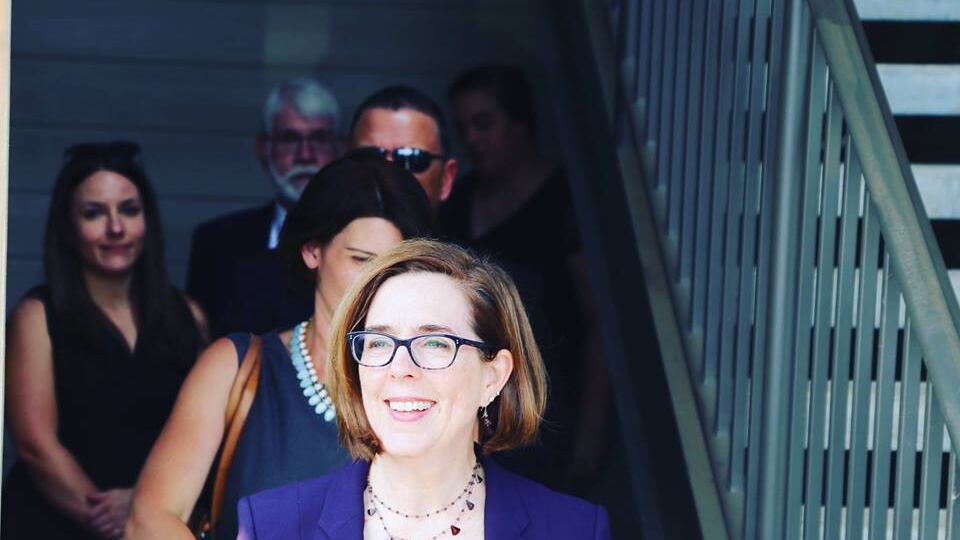The contentious cap-and-trade bill that caused Republicans to flee the Senate for nine days was effectively pronounced dead on Saturday. But it may have a chance at resuscitation.
Related: Senate President Peter Courtney Welcomes Republicans Back to Senate Floor, Kills Climate Bill
During a press conference today, Gov. Kate Brown said she is prepared to use her executive powers and direction of state agencies to propel the policies behind the bill forward, over Republican objections. The 2019 legislative session ended Sunday, meaning executive action from Brown is the last chance the legislation has at progressing this year.
Instead of concentrating on the notable successes Democrats had this session, Brown quickly noted that the legislature had passed funding for schools with the Student Success Act, which also caused Republicans to stage a walkout in May, and the Family Medical Leave Act, which will provide paid 12 weeks paid leave.
She instead spent the bulk of her speech on the notable failure and what actions she would take in the future.
Brown said of House Bill 2020: "Let me be very, very clear: I am not backing down."
"Working on legislation is my preferred approach; collaborating across the aisle and around the state," she said. "However, given the uncertainty that now permeates Oregon's political system, I am also directing my staff and agencies to explore alternative paths in case these collaborative approaches do not lead to successful legislation. This includes the use of my executive powers and direction of state agencies."
Brown stressed that the cap-and-trade legislation is crucial for the state to meet its greenhouse-gas reduction goals. She cited wildfire threats, forest degradation due to insects and disease, decreased agricultural yields caused by warming temperatures, ocean acidification and declining snowpack as consequences of climate inaction.
"I will continue to listen to any concerns brought by Oregonians. But make no mistake, doing nothing to reduce emissions is not an option," she said. "Not for our economy, our communities, our environment and of course, particularly, our children. I am open to modifications, but I am not open to inaction."
Environmental groups that championed the bill—which has been in the works for over a decade—lauded Brown's speech. Tera Hurst, executive director of Renew Oregon, said the Governor "can define her legacy by leading Oregon to do our share to combat this global crisis, while growing our economy and cleaning our air here at home."
"The legislature was required to adjourn yesterday, but their business is not done," Hurst continued. "Our elected officials rose to face many of Oregon's challenges, but not all of them, and perhaps the one with the largest and longest term impact is climate change. This is a priority."

